News
-
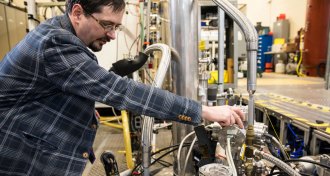 Particle Physics
Particle PhysicsThe search for mysterious dark matter underdogs steps up
Dark matter particles called axions are finally being put to the test.
-
 Environment
EnvironmentMicroplastics may enter freshwater and soil via compost
Compost is pinpointed as a source of plastic pollution, but environmental fate and effects unknown.
-
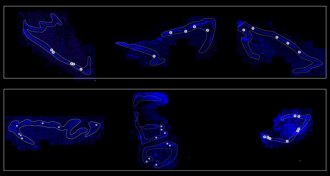 Neuroscience
NeuroscienceHuman brains make new nerve cells — and lots of them — well into old age
In humans, new neurons are still born in old brains, new research suggests.
-
 Earth
EarthEfforts to contain Mississippi floods may have made them worse
Intensive management of the Mississippi River has increased the size of its largest floods, suggests a new study.
-
 Astronomy
AstronomyA dozen new black holes found in Milky Way’s center
Twelve small black holes spotted in the Milky Way’s center suggest thousands more in the galaxy’s inner region.
-
 Climate
ClimateSeafloor map shows why Greenland’s glaciers melt at different rates
A new high-res look at the seafloor shows how ledges and dips affects whether relatively warm ocean water reaches the ice.
-
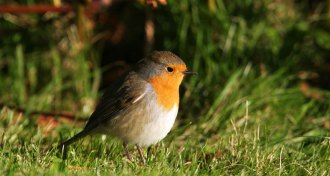 Genetics
GeneticsBirds get their internal compass from this newly ID’d eye protein
Birds can sense magnetic fields, thanks to internal compasses that likely rely on changes to proteins in the retina.
By Dan Garisto -
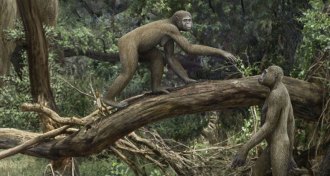 Anthropology
AnthropologyArdi walked the walk 4.4 million years ago
Ancient hominid evolved upright stance without sacrificing climbing ability.
By Bruce Bower -
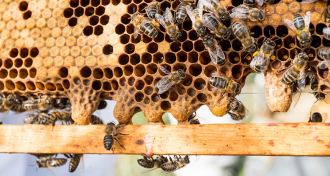 Animals
AnimalsHow honeybees’ royal jelly might be baby glue, too
A last-minute pH shift thickens royal jelly enough to stick queen larvae to the ceiling of hive cells.
By Susan Milius -
 Health & Medicine
Health & MedicineThe science behind cancer warnings on coffee is murky at best
The risks of acrylamide in coffee are not as clear as a California court ruling may suggest.
-
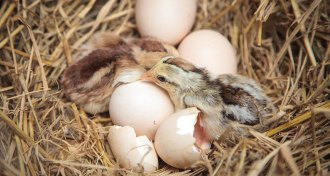 Materials Science
Materials ScienceEggshell nanostructure protects a chick and helps it hatch
The nanoscale structure of a chicken eggshell changes to fulfill different functions as the egg incubates.
-
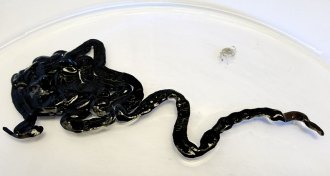 Animals
AnimalsToxins from the world’s longest animal can kill cockroaches
Bootlace worms can stretch up to 55 meters long and ooze toxins that can kill cockroaches and green crabs.
By Susan Milius